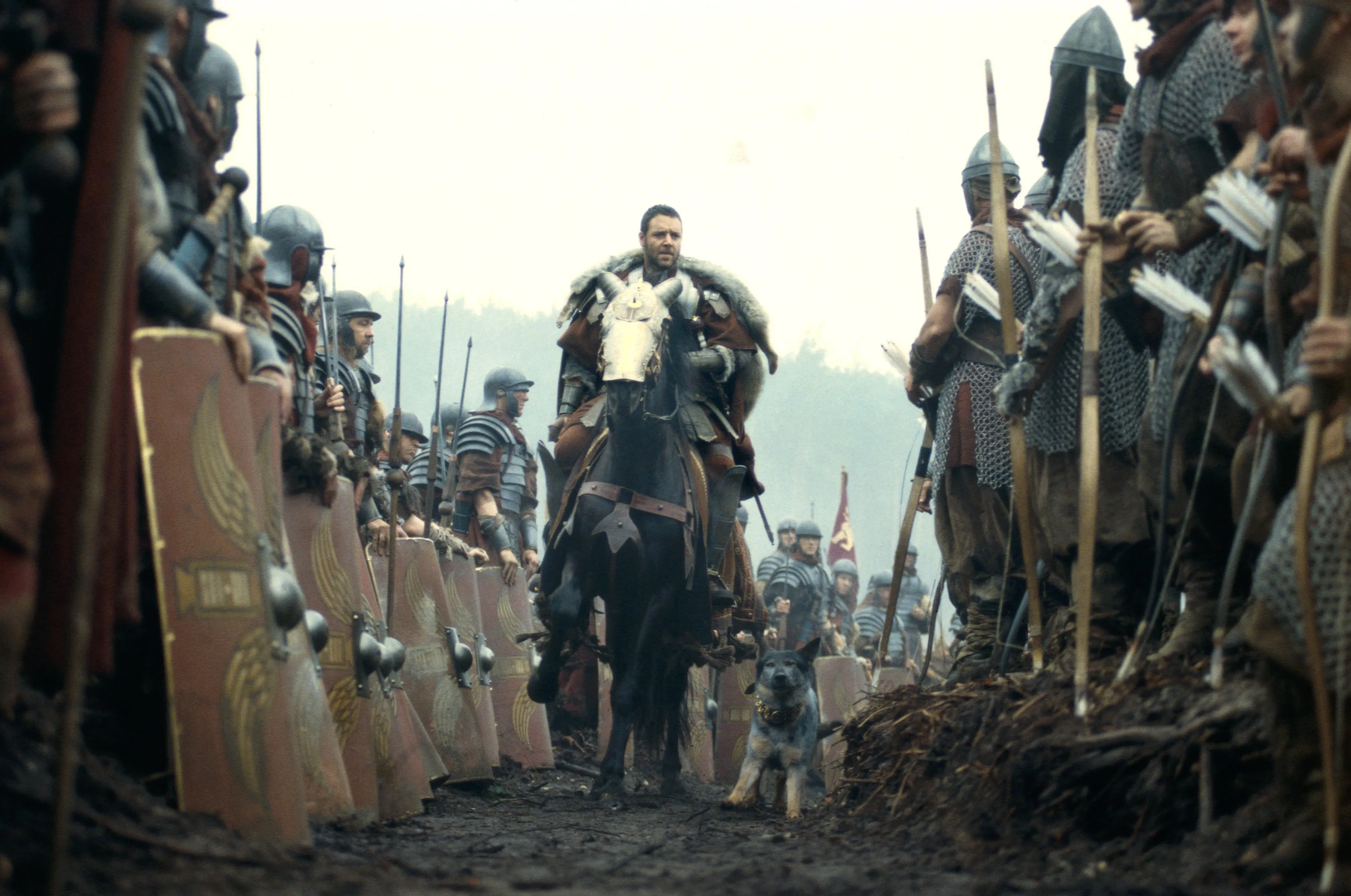Entertainment
Epic Power and Morality: How Ancient Stories Shape Modern Cinema
Manon 29/11/2024
Entertainment
Manon 29/11/2024

Epic tales of power, conflict, and morality have always captured our imagination, and modern cinema has found ways to blend these timeless narratives with advanced storytelling techniques. Films like Gladiator II are a perfect example of how ancient stories—whether rooted in history, mythology, or human struggle—still resonate with today's audiences. While these stories transport us to another time, it's the universal themes of power, morality, and the battle between good and evil that continue to captivate viewers. These themes transcend the past, blending dramatic spectacle with modern cinematic tools to explore complex human experiences that remain relevant across generations.
The Lasting Appeal of Ancient Stories
Ancient stories, from The Iliad and The Odyssey to Shakespeare’s Julius Caesar, have long held a special place in literature and the performing arts. These stories often revolve around powerful themes of human struggle, divine intervention, and tough moral decisions. They address fundamental questions that continue to concern us today: What is justice? What is the price of power? How do we define honor, loyalty, and betrayal?
When films like Gladiator II take on these themes, they breathe new life into the ancient world while exploring issues that are still relevant in today’s society. The film continues the narrative of power dynamics—showing how rulers manipulate systems for their own gain and how morality often gets lost in the pursuit of empire and glory. These are not just ancient concerns; they are mirrored in the struggles of today’s leaders, politicians, and even our personal relationships.
Combining History with Modern Cinematic Techniques
One of the defining features of films like Gladiator II is the fusion of historical events with modern filmmaking methods. While ancient history is often portrayed in a stylized, dramatic way, the visual spectacle—grand battle sequences, sweeping landscapes, and larger-than-life characters—adds a new dimension to these stories. The use of CGI, practical effects, and intricate set designs allows the audience to step into the ancient world with incredible detail, making it easier to connect with the narrative.
But it's not just about the visuals. The story structure and character arcs in these modern epics also reflect the complexity of today’s world. The moral conflicts and power struggles faced by characters are familiar to modern audiences. Whether it's a fallen hero seeking revenge or a ruler fighting to retain control, these personal battles echo those found in contemporary society. Audiences connect with the themes of loyalty, betrayal, and justice, as they see themselves reflected in these characters’ journeys. What makes these films stand out is their ability to make historical narratives feel personal and relevant to modern viewers.
Universal Themes: Power, Morality, and Human Nature
What keeps audiences coming back to ancient stories in modern films is the exploration of timeless themes. Power is a central theme, and it is portrayed as something that can corrupt and destroy. Whether it’s a ruler’s desire for dominance or a character's internal struggle for control, the consequences of this thirst for power are clear. The exploration of how power shifts, how it affects relationships, and how it can lead to destruction remains a relevant topic in today’s world.
Morality is another key element. The blurred lines between good and evil are what make these stories so captivating. Characters in films like Gladiator II often make difficult choices where the right path is not always clear. The moral complexity of these decisions draws viewers in and encourages them to reflect on their own values and actions. These struggles remind us that we live in a world where ethics are often gray, not black and white.
Finally, the theme of human nature continues to be central to epic storytelling. The connections between characters—whether through love, betrayal, or loyalty—serve as the emotional foundation of these stories. These relationships are relatable and universal, and they remind us of the emotional complexity of being human. Despite the grand battles and high-stakes conflicts, the real heart of these stories lies in the characters’ personal struggles and growth.

Films like Gladiator II remind us that the stories of ancient times still have a place in modern cinema. These films explore timeless themes of power, morality, and human nature—issues that remain just as important today as they were in the past. By blending historical narratives with modern storytelling techniques, these films engage viewers both emotionally and intellectually. They allow us to explore the same moral dilemmas, power struggles, and human relationships that have shaped history for centuries. In the end, it’s not just the visual spectacle that draws us to these films; it’s the chance to reflect on the fundamental aspects of what it means to be human. As modern cinema continues to evolve, the appeal of these ancient stories, told through a contemporary lens, will undoubtedly remain.
